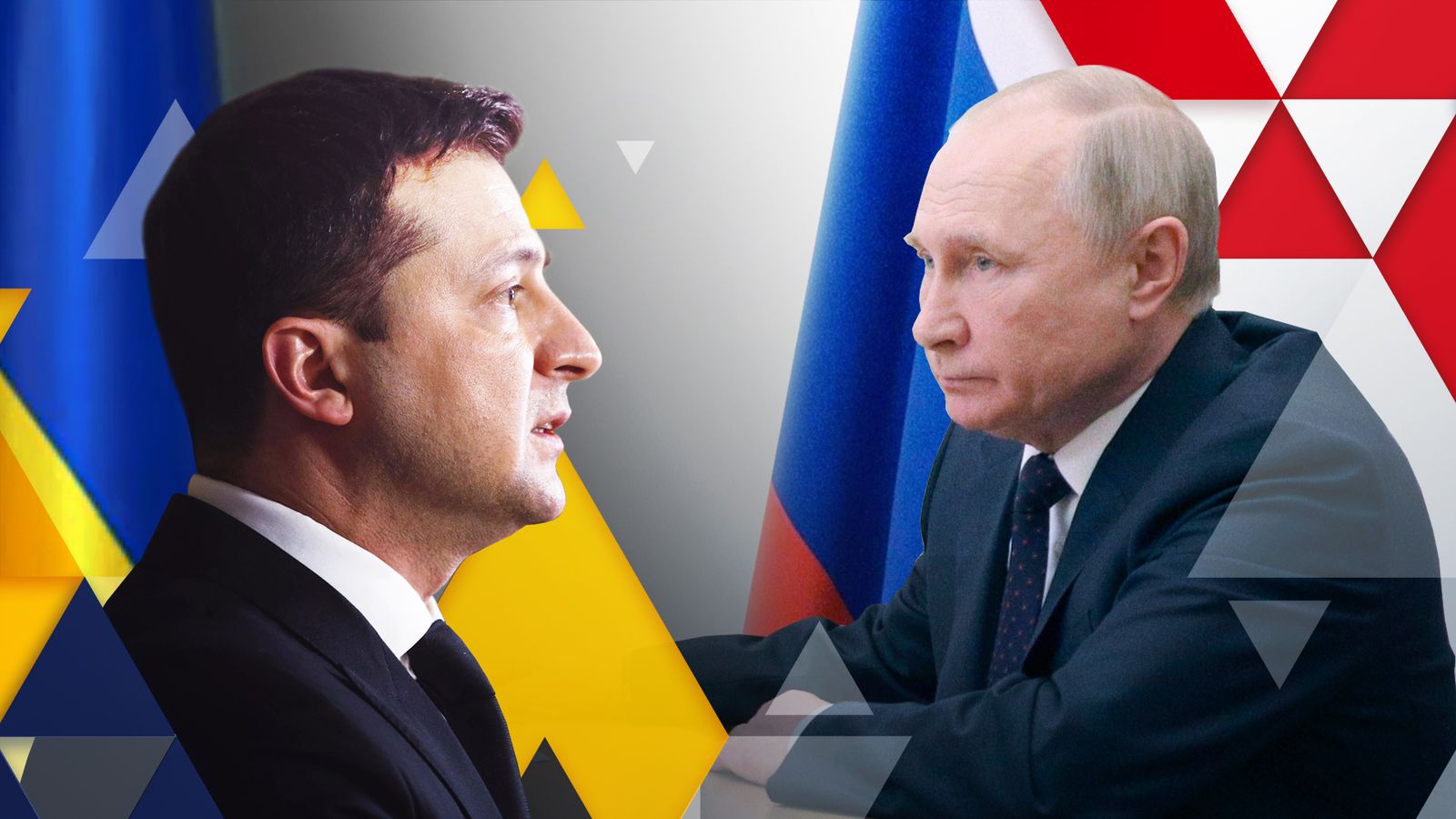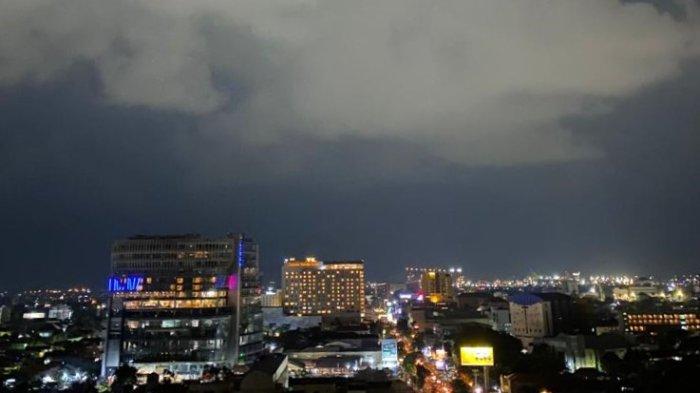Lula's Plan: Urging Putin To Negotiate With Zelenskyy In Istanbul

Table of Contents
The Rationale Behind Lula's Proposal
Lula's peace initiative stems from Brazil's commitment to global peace and conflict resolution. Brazil's neutral stance in the Russia-Ukraine conflict allows Lula to engage both sides without the baggage of prior alignment or perceived bias. His diplomatic efforts are built upon several key pillars:
-
Leveraging Personal Relationships: Lula aims to leverage his established relationships with both Putin and Zelenskyy to facilitate open dialogue. His history of engagement with both leaders provides a unique opportunity to build trust and encourage compromise.
-
Istanbul: A Neutral Venue: The proposed Istanbul venue is strategically significant. Istanbul has historically served as a neutral ground for significant international negotiations, offering a setting conducive to productive discussions. Its location bridges Europe and Asia, making it accessible to both parties.
-
Focus on Humanitarian Concerns: Lula's initiative seeks to explore pathways toward a ceasefire and lasting peace. A focus on immediate humanitarian concerns—such as prisoner exchanges and humanitarian aid corridors—could serve as an important entry point for broader negotiations.
-
Brazil's Role in Global Diplomacy: Brazil's active participation in international forums and its commitment to multilateralism positions Lula as a credible mediator, strengthening the credibility of his peace initiative. This active role in global diplomacy complements its neutral stance in the conflict.
Potential Obstacles and Challenges
Despite its potential, Lula's peace plan faces significant obstacles in the ongoing Russia-Ukraine war. These challenges include:
-
Deep-Seated Mistrust: Deep mistrust and animosity between Russia and Ukraine, fueled by years of conflict and escalating tensions, pose a major hurdle to successful negotiations. Overcoming this deep mistrust requires significant diplomatic effort and a demonstrable commitment to good faith from all parties.
-
Russia's Military Actions: Russia's ongoing military actions and territorial claims represent a significant barrier to peace. A cessation of hostilities is a prerequisite for any meaningful dialogue. The ongoing conflict actively undermines any attempt at peace talks.
-
Differing Perspectives: Differing perspectives on the war's root causes and solutions further complicate the negotiation process. Bridging this gap requires careful consideration of each side's grievances and concerns, a difficult task considering the emotionally charged nature of the conflict.
-
International Resistance: Potential resistance from NATO and Western allies, who have provided significant military and financial aid to Ukraine, could undermine Lula's initiative. Securing the support, or at least the neutrality, of key international players is essential for the plan’s success.
-
Domestic Political Pressures: Domestic political pressures on Lula, Putin, and Zelenskyy could also hinder the negotiation process. Internal political considerations might lead to compromises that are detrimental to the peace process.
The Role of Istanbul as a Negotiation Venue
The choice of Istanbul as a potential venue for peace talks is not arbitrary. Istanbul possesses several advantages:
-
Historical Precedent: Istanbul has a long history as a host for significant international meetings and treaties, establishing it as a location with established diplomatic protocols and infrastructure.
-
Geographical Advantage: Its geographical location, bridging Europe and Asia, offers logistical advantages for both Russia and Ukraine, reducing travel burdens and potentially enhancing the accessibility of the talks.
-
Turkey's Mediatory Role: Turkey's relationship with both Russia and Ukraine, while complex, gives it a unique position to facilitate the peace process. Turkey's neutrality is carefully calibrated; however, its direct engagement with both sides could be instrumental.
-
Security and Logistics: Istanbul offers relatively robust security and logistical capabilities, crucial for ensuring the safety and smooth operation of the negotiations. These elements are essential considerations given the sensitive nature of the talks.
-
Impact on Negotiation Success: The choice of venue can significantly impact the negotiation's success. Istanbul's symbolic significance and neutral status could foster a more conducive environment for productive talks.
International Responses and Implications
Lula's initiative has drawn varied international responses.
-
Western Reactions: Reactions from Western governments and international organizations have ranged from cautious optimism to skepticism. Concerns regarding Russia's intentions and the potential for a negotiated settlement that compromises Ukrainian sovereignty remain prevalent.
-
International Pressure: The initiative could potentially increase international pressure on Russia to engage in good faith negotiations. This pressure, however, will be dependent on the success of the initiative and the extent to which all parties remain committed to finding a peaceful resolution.
-
Impact on Sanctions and Aid: The success or failure of Lula's initiative will likely impact ongoing sanctions and military aid to Ukraine. A successful negotiation might lead to a reassessment of these policies; however, a failure could lead to continued and potentially increased support for Ukraine.
-
Role of Other Global Players: Other global players, including China, will play an important role in shaping the success of the initiative. Their support or opposition will be crucial in influencing the dynamics of the negotiations.
-
Shift in International Relations: The outcome of Lula's initiative could potentially lead to a wider shift in international relations and diplomatic strategies, particularly concerning the role of non-aligned nations in conflict resolution. The initiative highlights the increasing recognition of the need for diplomatic solutions and the importance of neutral mediators in achieving peace.
Conclusion
President Lula's plan to facilitate direct negotiations between Putin and Zelenskyy in Istanbul represents a significant, albeit risky, attempt to de-escalate the conflict in Ukraine. While significant obstacles remain, the initiative highlights the urgent need for diplomatic solutions and the potential role of non-aligned nations in bridging divides. The success of Lula's plan hinges on overcoming deep-seated mistrust and securing buy-in from all parties involved.
Call to Action: Stay informed about the evolving situation surrounding Lula's efforts to promote peace talks between Russia and Ukraine and follow the developments of this crucial diplomatic initiative for the future. The success of Lula's plan, and the potential for lasting peace in the region, depends on continued global attention and engagement. Learn more about Lula's peace initiatives and the ongoing situation in Ukraine.

Featured Posts
-
 Prakiraan Cuaca Semarang Besok 22 April Hujan Siang Hari Di Jawa Tengah
May 29, 2025
Prakiraan Cuaca Semarang Besok 22 April Hujan Siang Hari Di Jawa Tengah
May 29, 2025 -
 Proceso De Escolarizacion En Aragon 58 Colegios Con Riesgo De Sorteo
May 29, 2025
Proceso De Escolarizacion En Aragon 58 Colegios Con Riesgo De Sorteo
May 29, 2025 -
 Ancelotti And Capello Different Philosophies Similar Success
May 29, 2025
Ancelotti And Capello Different Philosophies Similar Success
May 29, 2025 -
 La Trayectoria De Victor Fernandez Un Presente Solido
May 29, 2025
La Trayectoria De Victor Fernandez Un Presente Solido
May 29, 2025 -
 Testing Crash Leaves Marini Hospitalized Updates And Investigation
May 29, 2025
Testing Crash Leaves Marini Hospitalized Updates And Investigation
May 29, 2025
Latest Posts
-
 2025 Love Moto Stop Cancer Online Auction Faqs
May 31, 2025
2025 Love Moto Stop Cancer Online Auction Faqs
May 31, 2025 -
 2025 Pro Motocross Championship What To Expect
May 31, 2025
2025 Pro Motocross Championship What To Expect
May 31, 2025 -
 Dont Miss Out 2025 Love Moto Stop Cancer Online Auction
May 31, 2025
Dont Miss Out 2025 Love Moto Stop Cancer Online Auction
May 31, 2025 -
 Supercross Is Back The Salt Lake City Race Is Coming Soon
May 31, 2025
Supercross Is Back The Salt Lake City Race Is Coming Soon
May 31, 2025 -
 Pro Motocross 2025 Riders Races And Predictions
May 31, 2025
Pro Motocross 2025 Riders Races And Predictions
May 31, 2025
